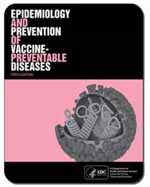 JBRA Assisted Reproduction. Online ahead of print
JBRA Assisted Reproduction. Online ahead of print
Every now and again the rumor surfaces that soda can cause infertility or a lower sperm count. According to Live Science, this is an urban myth. In fact, they say Mountain Dew (a bright yellow soda) was even assumed by some to work as birth control, but they warn not to depend on that if you don’t want to get pregnant.
Getting into hormone and cytokine details, however, a new study by Wopara et al on rats in Nigeria shows that the combination of Tartrazine (Yellow 5) and Erythrosine (Red 3) does change hormone levels, testicular gene expression, and inflammation in a dose-related way. They fed five groups of rats various dosages of the dyes or distilled water (the control group) every day for 23 days. This is not a short time for a rat who only lives about two years, but it is not anywhere near a lifetime, either.
In the group of rats that received the highest level of dye, their testes appeared abnormal and showed “noticeable degeneration of interstitial cells of Leydig.” Not only did that confirm testicular damage in that group, but the majority of the spermatozoa were observed to be immature, as well.
CONCLUSION: “Despite the desirable and amazing impact made in food, cosmetics, medicines, etc. by tartrazine and erythrosine, their buildup in the body can affect the testis by disrupting the normal state of its functional genes as well as tampering with the fertility hormone receptor genes, which may impair spermatogenesis, hence leading to infertility. More so, their buildup may initiate inflammatory diseases of the testis (orchitis).”
NOTE: Orchitis is a painful condition of the testicles which is similar to what an adult may get from mumps or a bacterial infection. Sometimes the cause is unknown. Mountain Dew, anyone?




















